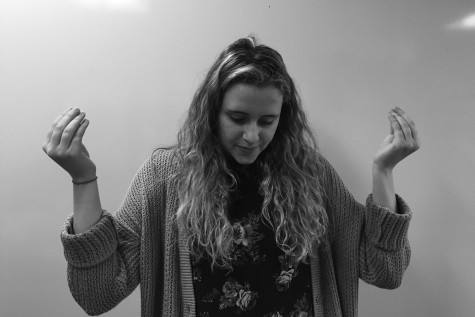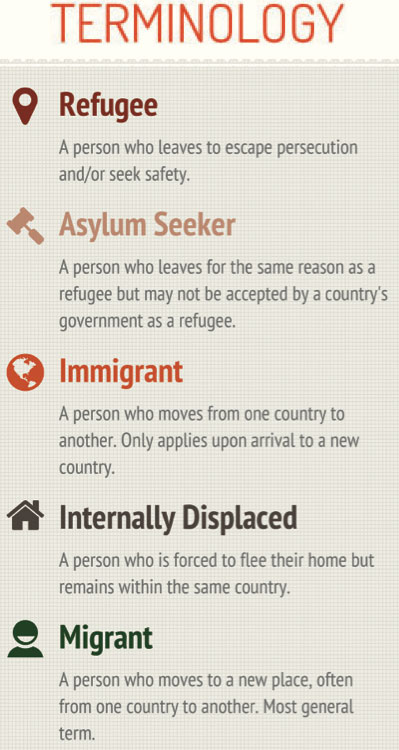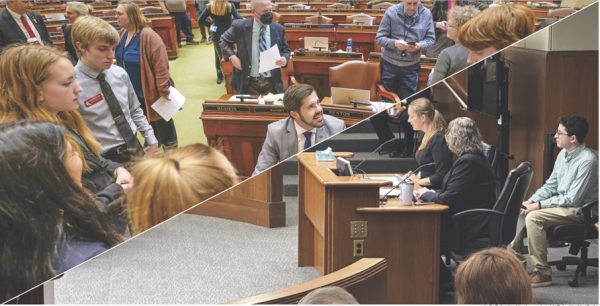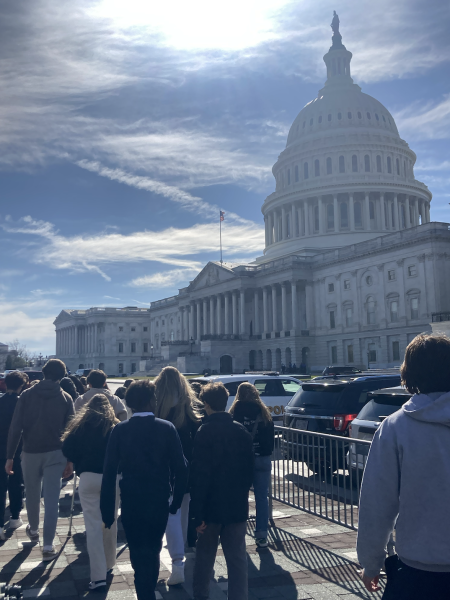Refugee crisis incites community response
With migrant crisis worse than ever, Global Community classes take action
Daniel Wordsworth, President of the American Refugee Committee, visited the Global Communities classes in late September and launched tremendous discussion on the topic of the migrant crisis.
Wordsworth’s work with the American Refugee Committee (ARC) commenced in 2009 during the refugee crisis in Pakistan, when 500,000 people left the country.
Today, the Syrian crisis has displaced millions, creating the largest mass exodus since the Rwandan Genocide over twenty years ago. While the number differs depending on the classifications of those fleeing, Syrians are currently the largest refugee population in the world.
Lisa Sackreiter, the school’s service learning coordinator, facilitated the partnership between ARC and the global communities, world literature, and world cultures classes. She notes the importance of this partnership, saying, “there are seven million people within Syria who are displaced. Those are the some of the people that [the ARC is] trying to help with food and water and safe shelter.”
Because of Wordsworth’s impassioned presentation, which for Alex Borgida ‘17 “brought forth super strong words of action,” students planned a two-day bake sale to raise funds for Syrian refugees.
The bake sale came out of Wordsworth’s message that financial assistance is the most needed form of aid at the moment. Able donors are often willing to give to isolated events like natural disasters than they are to give to an ongoing issue as big as the migrant crisis. However, it is just as vital for continued catastrophes.
Because of Wordsworth’s impassioned presentation, which for Alex Borgida ‘17 “brought forth super strong words of action,” Global Communities students planned the two-day bake sale.
Global Communities is a course that functions as structured simulation of the United Nations. Each student does extensive research on one country acts as its representative throughout the semester.
While the displaced individuals are mostly coming from Syria, an understanding of the international nature of this problem is present in class. Cameron Leslie ‘17, who represents Turkey, says that “as a country, we’ve been really destabilized, partially because of the refugees and partially because of the terror threat and the bombing this weekend there.” He notes that the extensive amounts of reading he has done for class “makes [him] aware of the number of people that are displaced.”
“Almost everyone addressed [the crisis] during opening speeches,” says Maceo Dunn ‘16, who represents Brazil in class.
This problem is so imminently dire that “you can’t even think about a long term solution right now,” says Borgida, who asked Wordsworth about a long-range plan. “There are so many people suffering that the first thing we need to do is get them food and help and aid.”
During this pivotal point in history, Wordsworth “helped [students] see and realize what a major crisis this is,” says Sackreiter. He prompted students to take action, warning them against passiveness.
Thanks to his call to action, the classes were able to raise over $1200.
While these immediate resources are important, continued discussion, engagement, and support is vital. Sackreiter notes that the bake sale served as a catalyst for conversation as well as a fundraising effort: “On one level, they made some baked goods and they sat there, but they also communicated to the upper school community that this matters, we care about this
In a global situation with a “magnitude so much bigger than anything we’ve dealt with,” says Lizzie Byrne ‘17, “we can’t ignore it anymore.”

Maxine has been a Spectrum Editor since the spring semester of her Freshman year. She was the Student Life Editor for her freshman/sophomore year on staff,...











